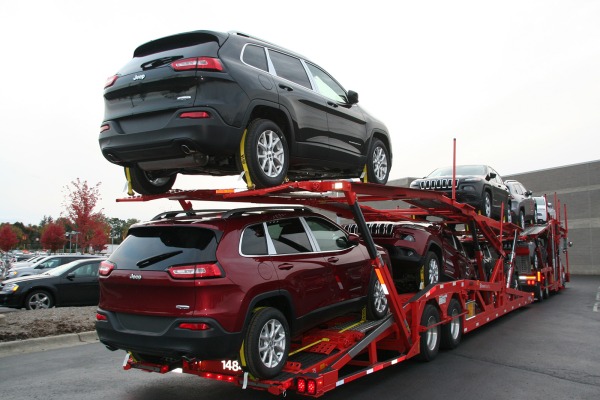
After taking a test-drive, you find out that the dealership doesn't have the exact car you want with the right color and options. "Not to worry," the salesman replies. "I can find you that car no problem. So let's go ahead and make a deal."
If you go forward, you've agreed to a "dealer swap." Is it a good idea to let the salesperson handle the search? Or are you better off going to the dealer that actually has the car you want in stock? For many car buyers, a dealer swap can work well. But in other cases it creates unforeseen problems. The key is to know what you're getting into before you agree.
What Is a Dealer Swap?
As the name implies (it's also called a "dealer trade") a dealer swap is an exchange of vehicles between dealers. Mike Bradley, Internet sales manager for Selman Chevrolet, said this allows the salesperson to gain the business of a customer who walks onto the lot. The salesperson wants to do everything in their power to prevent the customer from taking their business elsewhere.
How Does It Work?
Using a restricted-access computer search tool, the dealership is able to cast a wide search with very specific criteria. So if you have your heart set on a certain color or trim level, they can quickly locate the vehicle. In most cases, they'll ask for a deposit or have you fill out a credit application to ensure that you are serious about the purchase. "Dealers don't like to dealer-trade unless they think they can send that car down the road," said Bradley.
Dealerships often maintain relationships with other dealers in their area, allowing them to do such swaps. If they need a car that is available somewhere else, they will arrange a dealer trade and swap out the vehicles. The most common method is to swap for a similarly equipped vehicle. Sometimes the dealer will request a different vehicle in order to replenish their inventory wherever it is lacking. Or they just bank that favor, and save it for an occasion in which they may need a car from that dealer.
Can You Still Negotiate the Price of the Vehicle?
"Yes, you can absolutely negotiate on price," said Oren Weintraub, president of Authority Car Buying Specialists. "But it is essential to negotiate the deal before the trade."
Make your offer on the vehicle as if it were on the dealer lot. Once you settle on a price, you'll want to get it in writing, and make sure that any deposit you give is refundable, Weintraub said.
Here is a list of pros and cons to consider if you are offered a dealer swap:
Pros:
Cons:
Behind the Scenes
Sometimes a dealer swap will require that both dealers sell each other the vehicles. This can create its own set of problems. "Although it may seem simple, [dealer swaps] can get a little complicated," said John Giamalvo, a former dealership employee and director of dealer incentives for Edmunds.com.
"Generally, the dealer is just selling a piece of his inventory to another dealer. Most volume cars will be sold at invoice, hot cars perhaps for a small profit." Giamalvo added that there might be a tighter corridor of negotiation between invoice and MSRP depending on the swap price.
When shopping for our latest long-term vehicle, we considered a dealer swap but still wanted to inspect the car for ourselves. We learned that seeing the car for ourselves could jeopardize the swap. Our salesman gave us this advice to maintain our potential swap candidate.
If dealer "A" tells you that a vehicle is available at dealer "B" but you want to see the car for yourself, we suggest going to dealer "C" to look at a similar vehicle. The reason being that if dealer B sees you looking at their vehicle, they may be less likely to swap it to dealer A.
Is a Dealer Swap Right for Me?
This comes down to a personal preference, said Weintraub. "If getting the best price is paramount, you'll want to go to the dealer that has the vehicle in stock."
If you enjoy the level of service at a certain dealer, you don't have time for a prolonged search or if you don't have another dealer near you, a dealer swap might be a good option for you — as long as you realize what's going on behind the scenes.